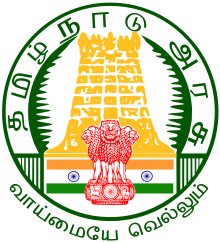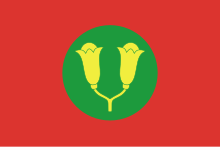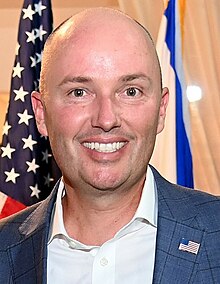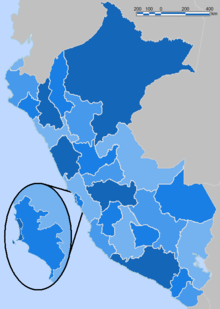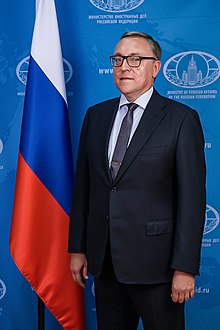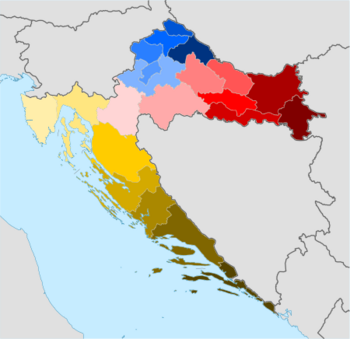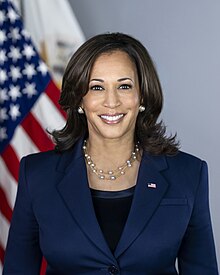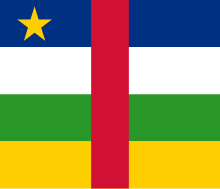Portal:Politics
| Main | Topics and categories | Tasks and projects |
The Politics portal
Politics (from Ancient Greek πολιτικά (politiká) 'affairs of the cities') is the set of activities that are associated with making decisions in groups, or other forms of power relations among individuals, such as the distribution of resources or status. The branch of social science that studies politics and government is referred to as political science.
It may be used positively in the context of a "political solution" which is compromising and non-violent, or descriptively as "the art or science of government", but also often carries a negative connotation. The concept has been defined in various ways, and different approaches have fundamentally differing views on whether it should be used extensively or in a limited way, empirically or normatively, and on whether conflict or co-operation is more essential to it.
A variety of methods are deployed in politics, which include promoting one's own political views among people, negotiation with other political subjects, making laws, and exercising internal and external force, including warfare against adversaries. Politics is exercised on a wide range of social levels, from clans and tribes of traditional societies, through modern local governments, companies and institutions up to sovereign states, to the international level.
In modern nation states, people often form political parties to represent their ideas. Members of a party often agree to take the same position on many issues and agree to support the same changes to law and the same leaders. An election is usually a competition between different parties.
A political system is a framework which defines acceptable political methods within a society. The history of political thought can be traced back to early antiquity, with seminal works such as Plato's Republic, Aristotle's Politics, Confucius's political manuscripts and Chanakya's Arthashastra. (Full article...)
Selected article
The monarchy of the United Kingdom is a system of government in which a hereditary monarch is the sovereign of the United Kingdom and its overseas territories. The terms British monarch and British monarchy may mean different things in different contexts beyond the United Kingdom. The present monarch is Queen Elizabeth II, who has reigned since 6 February 1952. The heir apparent is her eldest son, Charles, Prince of Wales and Duke of Rothesay. They and the Queen's husband and consort, Prince Philip, Duke of Edinburgh, undertake various public duties in accordance with their positions. Elizabeth II is Head of the Commonwealth and also reigns as head of state of 15 other Commonwealth countries. This developed from the former colonial relationship of these countries to Britain, but they are now independent and the monarchy of each is legally distinct.
Featured picture

Dilma Rousseff served as the 36th President of Brazil from 2011 until her impeachment in 2016. This is her official photograph on taking up the presidency.
Selected quote
Selected biography

William Henry Seward (/ˈsuːərd/; May 16, 1801 – October 10, 1872) was an American politician who served as United States Secretary of State from 1861 to 1869, and earlier served as governor of New York and as a United States senator. A determined opponent of the spread of slavery in the years leading up to the American Civil War, he was a prominent figure in the Republican Party in its formative years, and was praised for his work on behalf of the Union as Secretary of State during the Civil War. He also negotiated the treaty for the United States to purchase the Alaska Territory.
Did you know (auto-generated) -

- ... that artist Tove Jansson based the children's book character Snufkin on a political philosopher whom she had dated?
- ... that Satrio Sastrodiredjo and Moerachman, both former mayors of Surabaya, Indonesia, were held as political prisoners in the same prison after the 30 September Movement in 1965?
- ... that the historian and political journalist Lancelot Lawton addressed a House of Commons committee in London in 1935, beginning: "The chief problem in Europe to-day is the Ukrainian problem"?
- ... that American journalist and activist Clara Leiser traveled to Nazi Germany frequently, and documented the plight of families of political prisoners?
- ... that a year after becoming the first woman president of the Canadian Political Science Association, Caroline Andrew moderated the first Canadian leaders' debate on women's issues?
- ... that the continuing influence of the Catholic Church in the politics of the Philippines means that the country lacks a divorce law?
More did you know...
- ...that the public activist group Citizen Action shut down in 1997 due to the effects of a labor union election campaign funds scandal?
- ...that "Tippecanoe and Tyler too" (campaign banner pictured) was called the "Marseillaise" of the 1840 United States presidential election?
- ...that the events of Polish October together with Hungarian November shook the Eastern Bloc in 1956 and set the course for the Revolutions of 1989?
- ...that the current constitution of Nicaragua, the ninth in the country's history, was the final step in the institutionalization of the Sandinista regime?
- ...that co-founder of the Saudi Civil and Political Rights Association Mohammed al-Bejadi spent most of 2011 in prison?
- ...that tiao-kuai is the quasi-federal administration system in China?
In this month
- May 5, 2005 – A General Election in the United Kingdom sees Tony Blair's Labour government returned to office with a reduced majority of 66.
- May 14, 1948 – The Declaration of Independence of Israel is made.
- May 18, 1948 – The first Legislative Yuan of the Republic of China officially convenes in Nanking.
News and Current events
- August 11: 4 local government areas in New South Wales, Australia locked down after COVID-19 case
- August 11: Australia: AstraZeneca vaccine access expanded by Victorian government
- August 1: Australia: Victorian lockdown lifted
- July 29: Tunisia's president dismisses prime minister, suspends parliament
- July 25: Australia: Wikinews interviews Reg Kidd, mayor of the City of Orange, about COVID-19 lockdown and local government
- July 23: South Australia enters week-long lockdown to contain COVID-19 Delta variant spread
- July 21: Technological University Dublin senior lecturer Dr Lorcan Sirr speaks to Wikinews on housing market in Ireland
- July 21: Three rural councils in New South Wales, Australia enter 7-day lockdown
- July 21: Australia: Victoria lockdown extended by a week with 85 active cases recorded
- July 15: California governor signs new state budget, eligible Californians to get stimulus payments
Topics and categories
General images
Related portals
Associated Wikimedia
The following Wikimedia Foundation sister projects provide more on this subject:
-
Commons
Free media repository -
Wikibooks
Free textbooks and manuals -
Wikidata
Free knowledge base -
Wikinews
Free-content news -
Wikiquote
Collection of quotations -
Wikisource
Free-content library -
Wikiversity
Free learning tools -
Wiktionary
Dictionary and thesaurus



